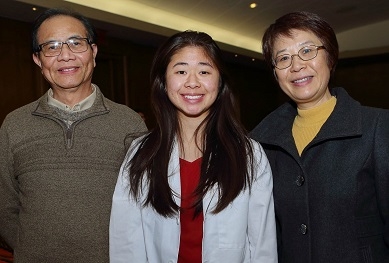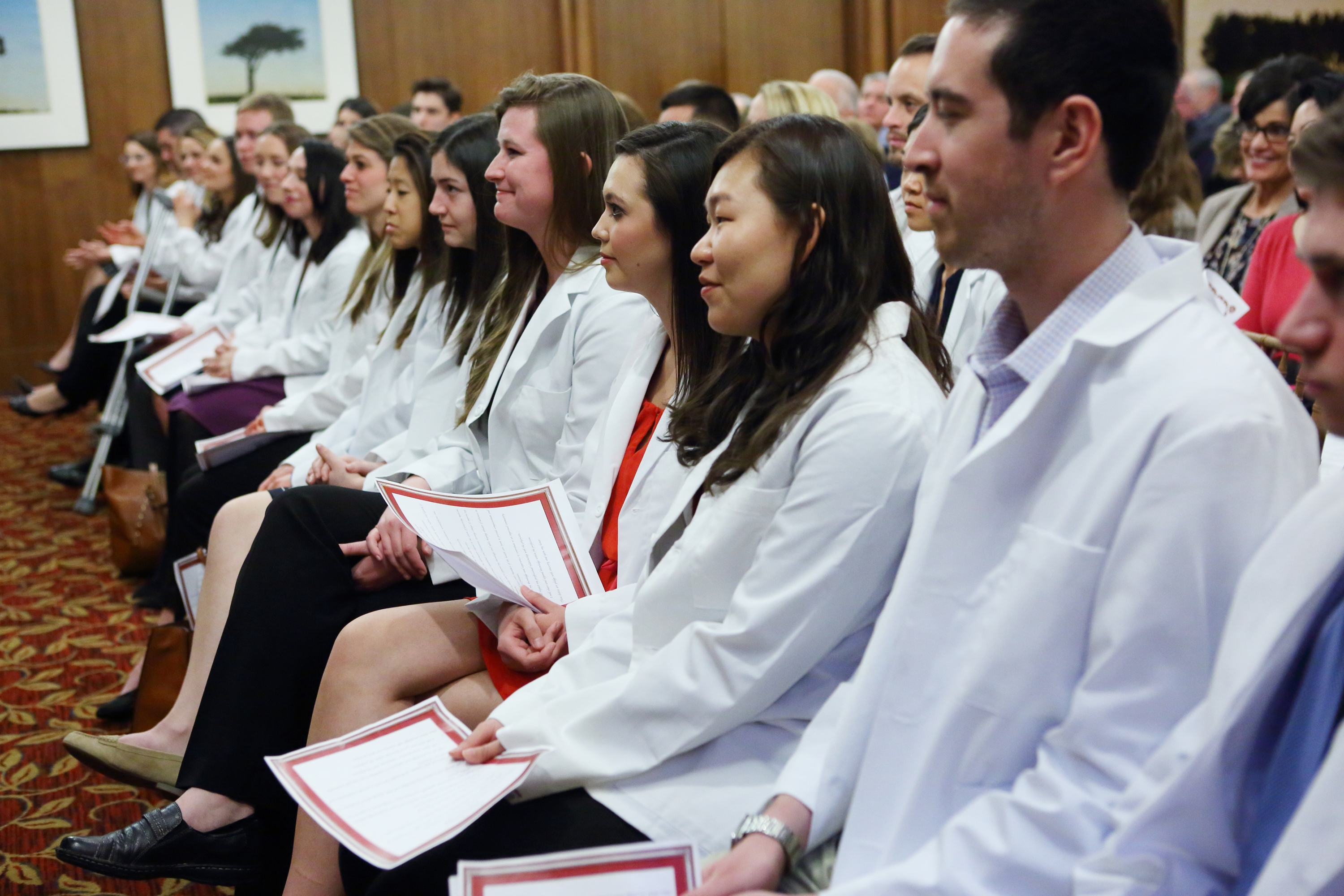Anna Cheung discovered early on that she had a passion for caring for others.
As a year-round high school athlete who played basketball and volleyball, and ran track and field, sustaining injuries also became a year-round experience. The California native quickly learned to not only treat her own strains and sprains, but those of her injured teammates as well. Her enthusiasm for medicine followed her off the court and field to UCLA, where she earned a bachelor’s in physiological sciences. She explored her interests even further working as a sports medicine intern and nursing volunteer and spending her summers as an emergency medical technician and medical scribe. But knew she had more to offer.

Physician assistant student Anna Cheung with her parents.
“This is an opportunity to be responsible for providing medical and emotional care for patients — an opportunity to better people’s lives,” said Cheung, whose parents emigrated from China before she was born in search of new opportunities, and proudly looked on as their daughter embarked on her journey in medicine. Enter Weill Cornell Graduate School of Medical Sciences’ Physician Assistant Program. On March 6, Cheung joined 30 of her classmates in receiving their short white coats, a milestone signifying the launch of their careers as physician assistants.
The 31 students who comprise the Class of 2019 — 9 men and 22 women — were selected from more than 1,100 applicants. Many of the aspiring physician assistants already have a strong foundation in healthcare, having worked as certified nursing assistants, patient care technicians, physical therapist aids, clinical research assistants and operating room orderlies.
David Reed, an instructor of physician assistant studies in surgery, joined Dr. Randi Silver, the associate dean of the Weill Cornell Graduate School of Medical Sciences, and other members of the faculty, in welcoming the students to the 26-month program.
“The white coat itself is a symbol of many different aspects of your position as students of healthcare: It serves as a badge of pride and honor,” Reed said. “You have earned your position here. It is also symbol of professionalism and trust from our patients.”
This year marks a milestone in the physician assistant profession, Reed said, noting that the first cadre of physician assistants graduated from Duke University 50 years ago. “Just as those pioneers of the physician assistant profession did, you too will play a vital role in the care of your patients,” he said. “And that’s what this is all about. At the end of the day, everything we do and the educational journey you are about to embark on is about that: our patients.”

